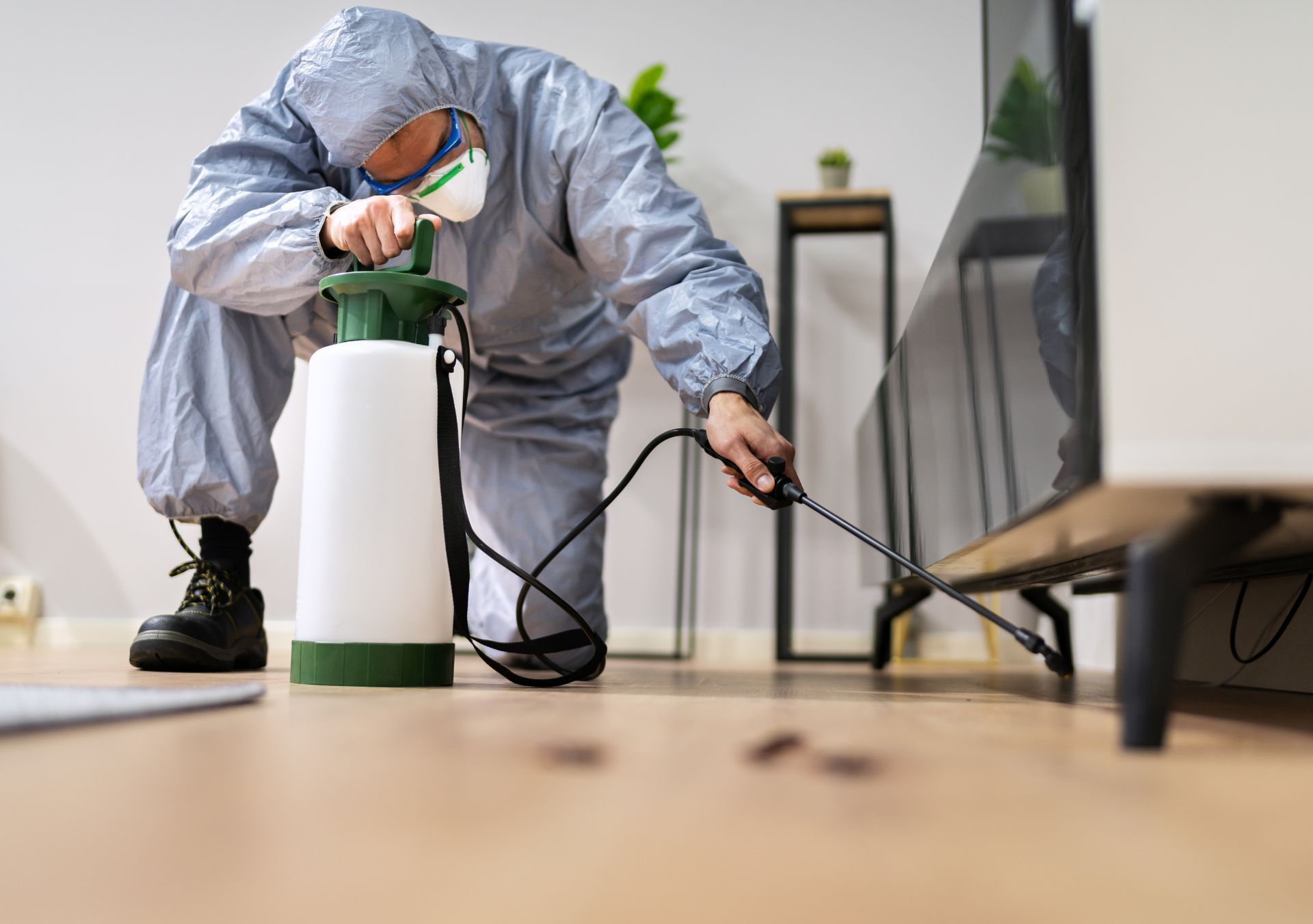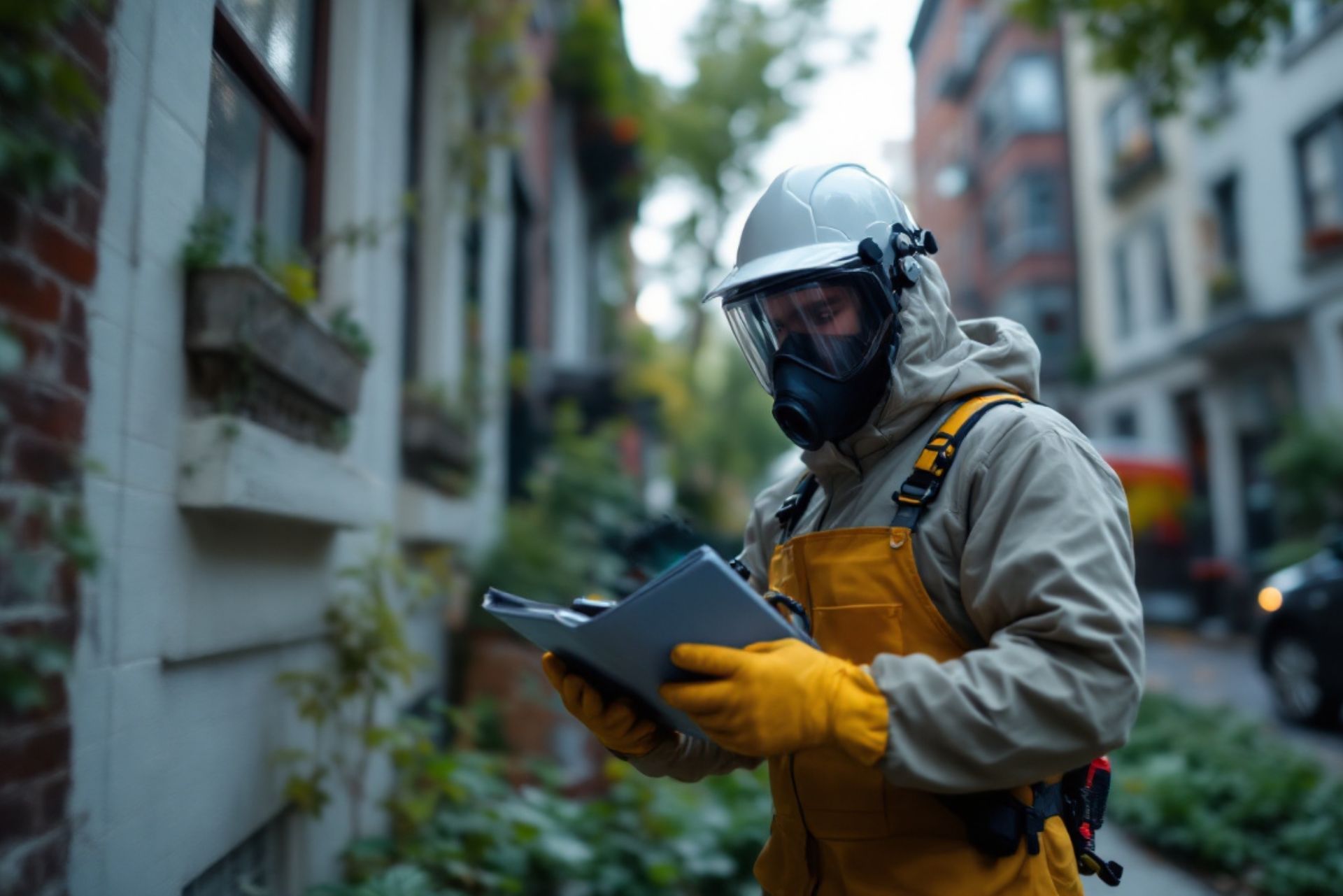
Most Common Business Policies
Index
Understanding Pest Control Insurance
New York Pest Control Insurance Requirements
Types of Pest Control Insurance Coverage
Cost of Pest Control Insurance in New York
Choosing the Right Pest Control Insurance Provider
Filing a Pest Control Insurance Claim in New York
Frequently Asked Questions about New York Pest Control Insurance
Contact Us
Understanding Pest Control Insurance
Pest control insurance is a specialized type of insurance designed to protect pest control companies from the unique risks they face in their operations. This type of coverage ensures that businesses can operate without the constant worry of financial losses due to unexpected incidents. Understanding the basics of pest control insurance is crucial for business owners looking to secure their livelihoods.
The Basics of Pest Control Insurance
At its core, pest control insurance encompasses various types of coverage that collectively protect a pest control business. This includes coverage for general liability, property damage, and professional liability. Each type of insurance plays a critical role in mitigating risks associated with pest control services.
Typically, pest control businesses operate in diverse environments and face multiple hazards ranging from accidents during service delivery to client complaints regarding service quality. Consequently, having a comprehensive insurance policy tailored to meet these challenges is essential for any pest control operator. Furthermore, many policies also include coverage for employee injuries, which is particularly important in an industry where technicians may be exposed to hazardous chemicals or dangerous situations while on the job. This aspect of coverage not only protects the business financially but also fosters a safer working environment for employees, ultimately contributing to higher morale and productivity.
Why Pest Control Insurance is Essential
Having pest control insurance is not merely a wise decision; it is a vital necessity. This insurance safeguards your business against potential lawsuits that could arise from accidental damages. For example, if a technician accidentally damages a client’s property while treating an infestation, the insurance would cover the costs related to the damages.
Additionally, pest control insurance can provide peace of mind. Knowing that your business is protected against unforeseen circumstances enables you to focus on delivering quality services to your customers. Furthermore, it enhances your credibility; clients are more likely to trust a company that has sufficient insurance coverage. In today’s competitive market, having robust insurance can also be a deciding factor for potential clients when choosing between service providers. Many clients actively seek out companies that can demonstrate financial responsibility and risk management through adequate insurance, making it a strategic asset for business growth.
Moreover, pest control insurance can also cover the costs associated with legal fees in the event of a lawsuit, which can be a significant financial burden for small businesses. In an industry where the stakes can be high, having the right insurance not only protects your assets but also ensures that you can continue to operate effectively, even in the face of challenges. This financial safety net allows pest control operators to invest in their business, whether that means upgrading equipment, expanding service offerings, or enhancing employee training programs, all of which can lead to improved service delivery and customer satisfaction.

New York Pest Control Insurance Requirements
In New York, the requirements for pest control insurance can be quite specific. The state mandates that pest control businesses adhere to various regulations designed to protect both companies and consumers. Understanding these requirements is fundamental for compliance and sustainable operation.
State Regulations for Pest Control Businesses
New York State has specific regulations in place that govern pest control operations, including specific licensing requirements and insurance coverage mandates. Businesses must obtain a pest control business license, which typically requires proof of insurance to ensure financial responsibility. This licensing process not only protects consumers but also minimizes the risk of unqualified service providers operating in the industry.
The New York Department of Environmental Conservation oversees these regulations, ensuring that pest control companies adhere to safety and environmental protection standards. This oversight ultimately ensures that customers receive services from qualified and insured professionals. Furthermore, pest control companies are often required to undergo training and certification programs that cover the safe handling of pesticides and other chemicals, thereby promoting environmentally responsible practices. This commitment to safety not only safeguards the public but also enhances the reputation of the pest control industry as a whole.
Compliance with New York Insurance Laws
Compliance with New York’s insurance laws is non-negotiable for pest control businesses. These laws dictate the minimum coverage requirements that companies must maintain to operate legally in the state. For instance, general liability insurance is required to cover damages that may occur during the pest control process.
Additionally, workers' compensation insurance is mandatory to protect employees in the event of work-related injuries. Businesses must ensure that they remain compliant with these laws not just to avoid penalties, but also to foster trust and goodwill among their clients. Maintaining adequate insurance coverage is not only a legal obligation but also a strategic business decision; it can serve as a marketing tool that reassures potential customers about the professionalism and reliability of the services offered. Moreover, having comprehensive insurance can help businesses manage risks effectively, allowing them to focus on providing quality pest control solutions without the constant worry of financial repercussions from unforeseen incidents.
Types of Pest Control Insurance Coverage
Understanding the different types of coverage available under pest control insurance can help business owners choose the best policy for their needs. Each type of insurance plays a distinct role in protecting various aspects of the business.
General Liability Insurance
General liability insurance is one of the most critical components of a pest control insurance policy. This coverage protects businesses from claims of bodily injury or property damage that may occur as a result of their operations. For example, if a customer slips and falls while a pest control team is conducting services, general liability insurance would cover the associated medical expenses and legal fees.
This type of coverage is essential, as accidents can happen in any industry, and having insurance safeguards your business against potentially devastating financial consequences. Moreover, many clients may require proof of general liability coverage before hiring a pest control service, making it not only a protective measure but also a competitive advantage in the marketplace.
Professional Liability Insurance
Professional liability insurance, also known as errors and omissions insurance, provides coverage for claims arising from mistakes or negligence in the professional service rendered. If a pest control operator fails to adequately address a pest problem and the client suffers damages as a result, this insurance can protect the provider by covering legal defense costs and settlements.
Professionals in the pest control industry are expected to provide a certain level of service; thus, having this type of insurance is vital to mitigate risks associated with claims of negligence or inadequate service. Additionally, this coverage can extend to situations where a client alleges that the pest control methods used were ineffective or caused unintended harm, further emphasizing the importance of maintaining a robust professional liability policy.
Commercial Property Insurance
Commercial property insurance covers physical assets, such as equipment, tools, and office space, against risks like theft, vandalism, or natural disasters. For pest control businesses, which often rely heavily on specialized equipment for services, this type of coverage is crucial.
Investing in commercial property insurance not only protects your belongings but also ensures that your business can continue operating smoothly in the event of a covered loss, reducing downtime and financial burdens. Furthermore, this insurance can also cover loss of income if your business is temporarily unable to operate due to damage to your property, providing an additional layer of financial security during challenging times.
Cost of Pest Control Insurance in New York
The cost of pest control insurance can vary significantly among providers and is influenced by several factors. For business owners, understanding these factors is vital for budgeting and selecting the most appropriate insurance policy.
Factors Influencing Insurance Premiums
Several factors play a role in determining the premiums of pest control insurance. Key considerations include the size of the business, the number of employees, types of services offered, and the company’s claims history.
- Business Size: Larger companies often pay higher premiums due to increased exposure to risk.
- Employee Count: The more employees you have, the greater the risk, which could lead to higher costs.
- Services Offered: Specialized services may require additional coverage due to higher liabilities.
- Claims History: Frequent claims can drive up premiums, as insurers may view the business as higher risk.
Ways to Lower Your Insurance Costs
While pest control insurance can be essential, it can also be a significant expense. There are several strategies that business owners can use to lower their insurance costs without sacrificing necessary coverage.
- Shop Around: Compare quotes from different insurance companies to ensure you're getting the best rate available.
- Increase Deductibles: Opting for a higher deductible can lower your premium, though this also means more out-of-pocket costs in the event of a claim.
- Implement Safety Programs: Taking proactive steps to reduce workplace accidents can lead to lower insurance costs.
- Bundle Policies: Many insurers offer discounts for bundling multiple insurance policies together, reducing overall costs.
Understanding Coverage Options
It's important for pest control businesses to not only focus on costs but also to understand the various coverage options available. Standard pest control insurance typically includes general liability, which protects against third-party claims for bodily injury or property damage, and professional liability, which covers claims related to negligence or failure to perform professional duties. Additionally, coverage for equipment and vehicle insurance is crucial, as pest control operations often rely on specialized tools and transportation to service clients effectively.
Business owners should also consider adding coverage for environmental liability, which can be particularly relevant in pest control due to the use of chemicals and pesticides. This type of insurance protects against claims related to pollution or contamination that may arise from the application of these substances. By carefully evaluating the specific needs of their business and the potential risks involved, pest control operators can tailor their insurance policies to provide comprehensive protection while managing costs effectively.

Choosing the Right Pest Control Insurance Provider
Finding the right pest control insurance provider is crucial to ensure your business has the right protection. This decision can significantly impact how well your insurance covers your business needs.
What to Look for in an Insurance Provider
When searching for a pest control insurance provider, there are several critical factors to consider. A strong reputation within the industry, comprehensive coverage options, and excellent customer service are paramount.
Moreover, it’s advisable to choose an insurer with experience specifically in the pest control sector so that they understand the unique risks you face. Moving forward, confirming the financial stability of an insurance company can provide assurance that they can meet their obligations when claims arise. Additionally, consider the insurer's claims process; a straightforward and efficient claims procedure can save you time and stress in the event of an incident. Look for providers that offer 24/7 claims reporting, as this can be invaluable for businesses that operate outside of traditional hours.
Tips for Comparing Insurance Quotes
When comparing insurance quotes, it’s essential to look beyond just the price. While affordability is important, the coverage limits, exclusions, and deductibles should also be closely examined. One effective approach is to create a checklist of coverage needs and ensure that each proposal meets these requirements.
Engaging with an insurance broker who specializes in pest control insurance can offer valuable insights and help navigate the complexities of chosen policies. This proactive approach can assist in recognizing potential pitfalls and ensuring the best coverage deal. Furthermore, consider seeking testimonials or reviews from other pest control businesses to gauge their experiences with various providers. This real-world feedback can provide a clearer picture of what to expect and help you make a more informed decision. Additionally, some insurers may offer tailored packages that cater specifically to the needs of pest control companies, which can be worth exploring for more customized coverage options.
Filing a Pest Control Insurance Claim in New York
Filing a claim can be a complex process, but understanding the steps involved can simplify the experience for business owners. It is essential to know how to effectively navigate this process to ensure timely resolutions.
Steps to File an Insurance Claim
To file a pest control insurance claim in New York, follow these fundamental steps:
- Notify Your Insurance Provider: Contact your insurance company as soon as the incident occurs.
- Document the Incident: Collect all relevant information, including photos, witness statements, and any materials related to the claim.
- Complete the Claim Form: Fill out the required claim form provided by your insurer with accurate and detailed information.
- Follow Up: After submitting your claim, regularly check in with your insurer to monitor the status of your claim.
Understanding the Claim Process
The claim process can vary depending on the insurer, but generally, it involves an investigation into the incident to confirm coverage and validate the claim. Insurers will review all submitted materials and may require further information during their evaluation.
After the assessment, the insurance company will make a decision regarding the claim. It is crucial to remain in communication with the insurer during this process and be prepared to provide any additional documentation required to expedite the claim resolution.
Frequently Asked Questions about New York Pest Control Insurance
Understanding pest control insurance can sometimes be overwhelming, leading to many common queries. Addressing these questions can provide clarity for business owners considering insurance options.
Common Queries about Pest Control Insurance
Some of the most frequently asked questions regarding pest control insurance include:
- What types of coverage do I really need? – Depending on your business operations, you may need various coverage types. Consulting an expert can clarify your needs.
- How can I determine the right policy limits? – Assessing your business risks can help determine suitable policy limits to protect against potential liabilities.
- Can I change my coverage mid-term? – Most insurance policies allow adjustments, but it’s best to consult with your insurer.
Misconceptions about Pest Control Insurance
There are several misconceptions about pest control insurance that can lead to misunderstandings. One common belief is that businesses do not need insurance if they have a perfect safety record, which is not true. Even the safest companies can face lawsuits or accidents that necessitate insurance coverage.
Moreover, some assume that all insurance policies cover the same risks, which is misleading. Each policy offers different coverage options and limits, highlighting the need for thorough review and understanding of specific policies before purchase.
In conclusion, understanding the intricacies of pest control insurance is vital for any business operating in New York. By being informed about the types of coverage, the regulatory landscape, and how to effectively manage costs, pest control operators can safeguard their business against unforeseen events while maintaining compliance with state requirements. Ultimately, the right insurance not only protects your business but also enhances its credibility and reliability in the eyes of consumers.
